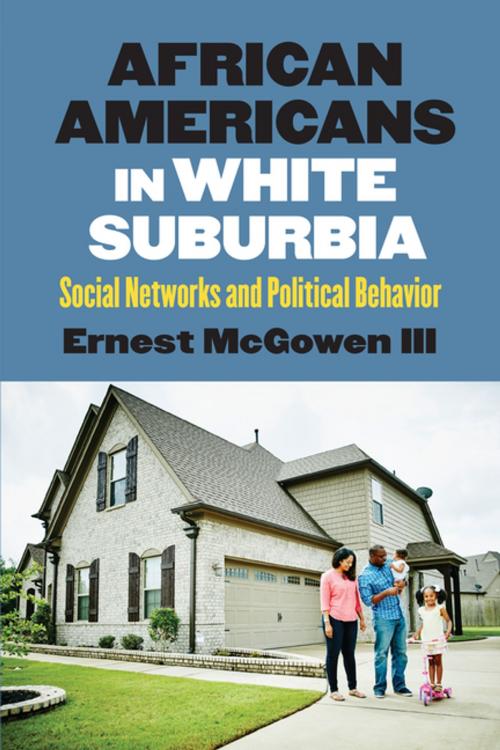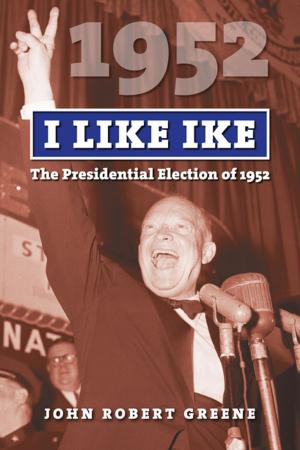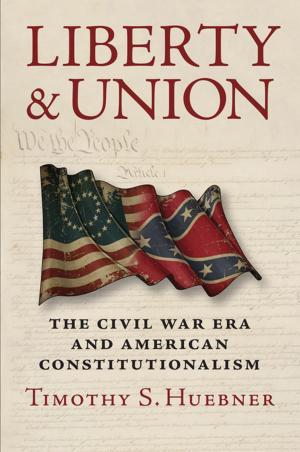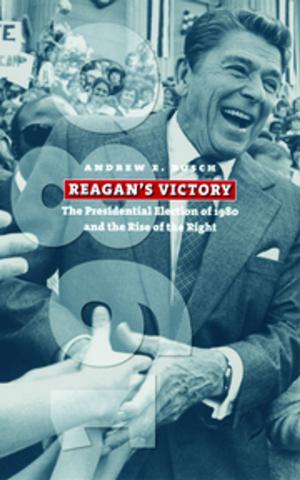African Americans in White Suburbia
Social Networks and Political Behavior
Nonfiction, Social & Cultural Studies, Political Science, Government, Local Government, Social Science, Cultural Studies, African-American Studies| Author: | Ernest McGowen | ISBN: | 9780700624188 |
| Publisher: | University Press of Kansas | Publication: | June 9, 2017 |
| Imprint: | University Press of Kansas | Language: | English |
| Author: | Ernest McGowen |
| ISBN: | 9780700624188 |
| Publisher: | University Press of Kansas |
| Publication: | June 9, 2017 |
| Imprint: | University Press of Kansas |
| Language: | English |
Despite decades of progress, African Americans living in largely white affluent suburbs still often find themselves caught between the two worlds of race and class. High economic status has afforded them considerable employment opportunities and political resources—but not necessarily neighbors, coworkers, or local candidates or office holders who share or even understand their concerns. How does such an environment affect the political behavior of African Americans who have strong racial identifications and policy preferences? This is the question Ernest B. McGowen III asks in African Americans in White Suburbia.
McGowen uses a combination of surveys to understand the attitudes of affluent suburban African Americans, compare these attitudes to those of their white neighbors, and to African Americans in the city and so-called “black ring” suburbs. This detailed study—which ranges from participation in black churches and other institutions to attitudes towards government and affirmative action—reveals that suburban African Americans feel their minority status acutely. As a result, they tend to seek out more agreeable networks that reinforce their racial identity, such as churches, fraternal organizations, and charities in black neighborhoods they’ve left behind.
Arriving at a moment of great controversy over racial disparities and division, his timely study offers invaluable insight into the complex nexus of race and class in America.
Despite decades of progress, African Americans living in largely white affluent suburbs still often find themselves caught between the two worlds of race and class. High economic status has afforded them considerable employment opportunities and political resources—but not necessarily neighbors, coworkers, or local candidates or office holders who share or even understand their concerns. How does such an environment affect the political behavior of African Americans who have strong racial identifications and policy preferences? This is the question Ernest B. McGowen III asks in African Americans in White Suburbia.
McGowen uses a combination of surveys to understand the attitudes of affluent suburban African Americans, compare these attitudes to those of their white neighbors, and to African Americans in the city and so-called “black ring” suburbs. This detailed study—which ranges from participation in black churches and other institutions to attitudes towards government and affirmative action—reveals that suburban African Americans feel their minority status acutely. As a result, they tend to seek out more agreeable networks that reinforce their racial identity, such as churches, fraternal organizations, and charities in black neighborhoods they’ve left behind.
Arriving at a moment of great controversy over racial disparities and division, his timely study offers invaluable insight into the complex nexus of race and class in America.















